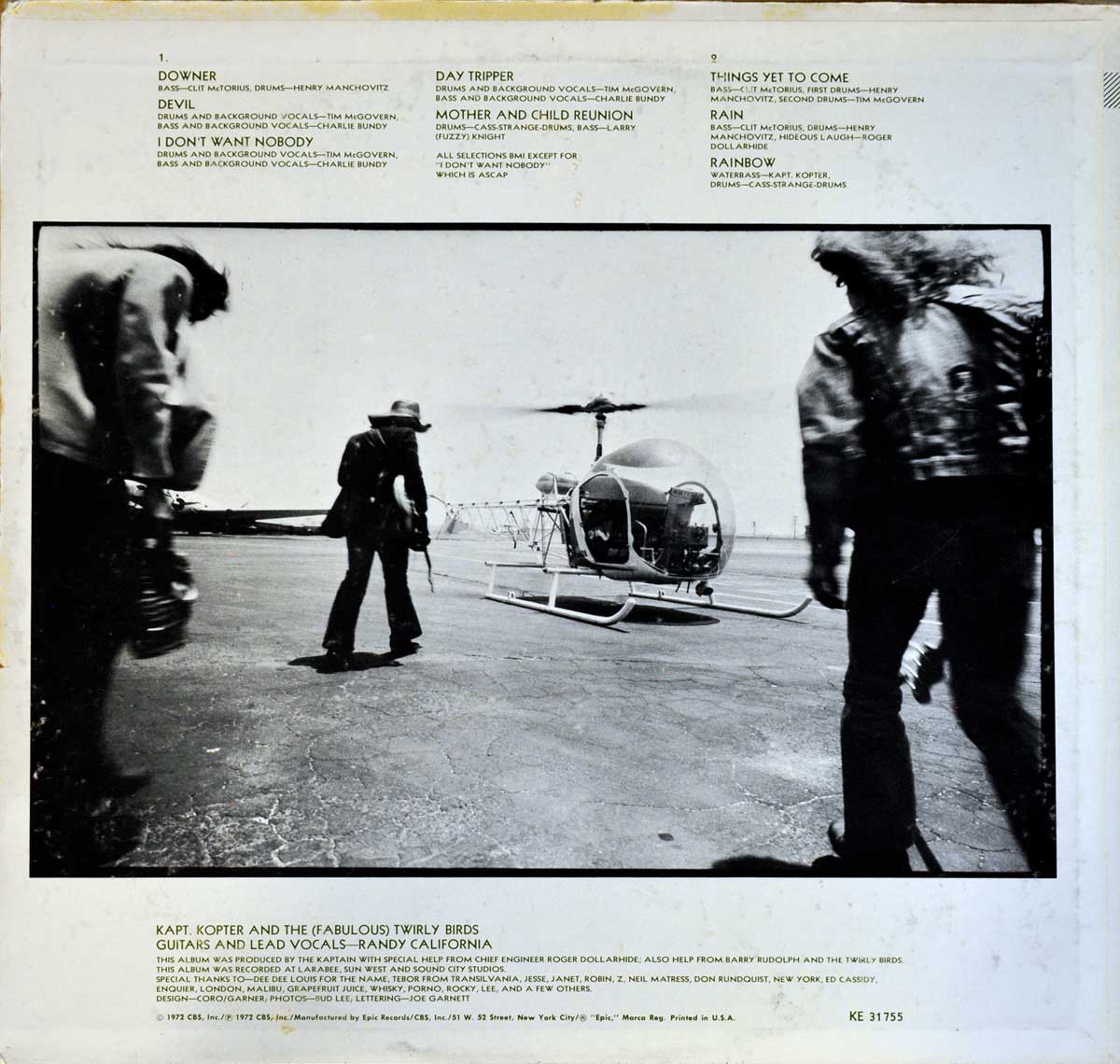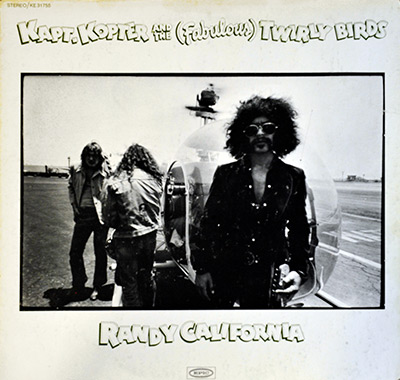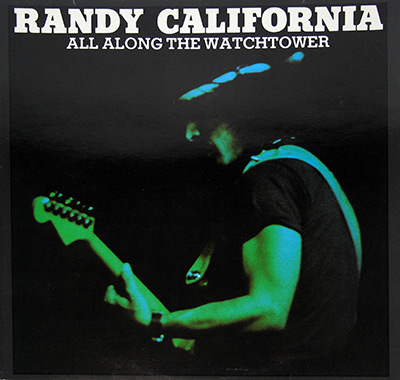Released in 1972, following Randy California's departure from Spirit, "Kapt. Kopter and the (Fabulous) Twirly Birds" marks a significant turning point in his musical career. It's a raw, unfiltered, and experimental album that reflects the turbulent times and the artist's desire for creative freedom.
The Aftermath of Spirit:
In the early 1970s, Spirit had achieved critical acclaim but struggled with commercial success and internal conflicts. California, feeling disillusioned and creatively stifled, decided to leave the band and embark on a solo journey. "Kapt. Kopter" is a product of this newfound independence, a chance for him to explore his musical ideas without the constraints of a band dynamic.
A Sonic Experiment:
The album is a sonic hodgepodge, blending elements of hard rock, blues, psychedelia, and even hints of country. It's a far cry from the polished sound of Spirit, showcasing a rougher, more spontaneous side of California's musicality. Songs like "Downer" and "Devil" are raw and gritty, while "Day After Day (It's Slippin' Away)" and "Once I Had a Dream" reveal a more introspective and melancholic side.
The Twirly Birds:
Despite being a solo album, California didn't create "Kapt. Kopter" in isolation. He enlisted the help of various musicians, including some familiar faces from the music scene. Notably, Noel Redding and Mitch Mitchell, former members of the Jimi Hendrix Experience, made uncredited appearances on the album. This collaboration adds another layer of intrigue to the project, hinting at California's enduring connection to his early musical roots.
Controversies and Challenges:
The album's release was not without its challenges. There were conflicts with the record label, Epic Records, regarding the album's direction and promotional efforts. Additionally, the experimental nature of the music didn't resonate with all listeners, leading to mixed reviews and a limited commercial impact.
Production and Recording:
"Kapt. Kopter" was recorded at various studios in Los Angeles, including Larrabee Sound Studios, Sunwest Recording Studios, and Sound City Studios. The production team included California himself, under the pseudonym "Kapt. Kopter," and Robin Wolfe, his brother. The album's raw sound and spontaneous feel are partly due to the loose and experimental nature of the recording sessions.
Frontman and Visionary:
Throughout the album, Randy California's presence as a frontman and visionary is undeniable. His vocals are raw and emotive, his guitar playing is fiery and passionate, and his songwriting is introspective and thought-provoking. "Kapt. Kopter" is a testament to his talent and his willingness to take risks, even if it meant alienating some listeners.




